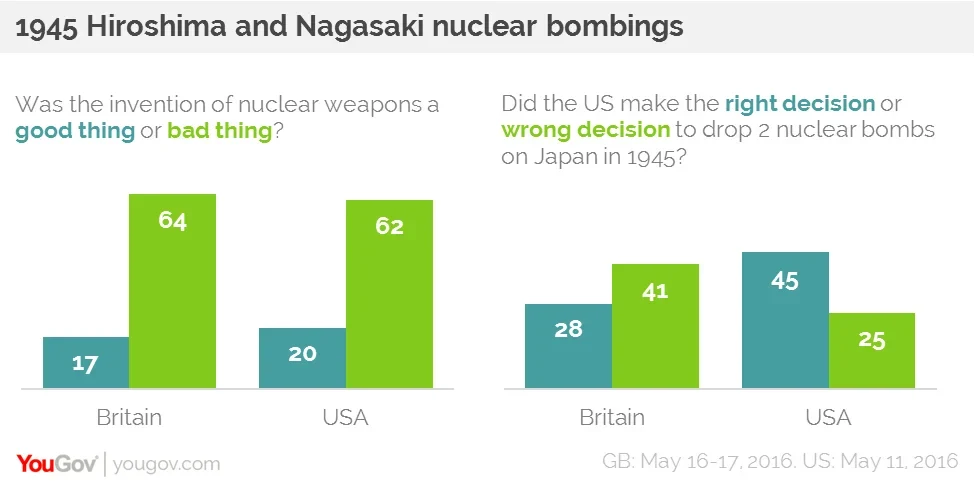British people tend to say America was wrong to drop two nuclear weapons on Japan in 1945 – but Americans tend to defend their actions
Barack Obama has announced he will visit Hiroshima this month while on a visit to Japan and Vietnam, making him the first US President to visit the city since it was hit by a US nuclear bomb in 1945. A statement from the president's press office said the visit would "highlight his continued commitment to pursuing peace and security in a world without nuclear weapons", however his communications officer said Obama would "not revisit the decision to use the atomic bomb at the end of World War II."
2015 marked 50 years since America, with the consent of the UK, dropped nuclear weapons on Hiroshima and Nagasaki, killing around 129,000 people and leading to Japan's surrender, effectively bringing an end to World War II. YouGov recently asked the US public if this was the right thing to do, and found 45% in defense of the decision while 25% were critical.
British people, however, tend to oppose America's use of nuclear force. 41% say it was the wrong decision and 28% say it was right.

Only the 65+ generation, whoe lived through or within recent memory of the war, tend to say the US was right to drop nuclear weapons on Japan (49% compared to 31% who say it was wrong). In the US both the 45-64 and 65+ generations say the use of nuclear weapons was right, while the 18-29 and 30-44 generations tend to say it was wrong.
In both countries, majorities of every generation say the invention of nuclear weapons was a bad thing nonetheless.
Five months after his election as President in 2008 Barack Obama pledged “America’s commitment” to a “world without nuclear weapons”. During his time in office substantial reductions in nuclear weapons were negotiated with Russia, their role in US security strategy was weakened and a deal with Iran lent confidence to the nonproliferation movement. However, 15,000 nuclear weapons remain in the world, and the threat of nuclear war between the US and Russia may be as high as ever.










